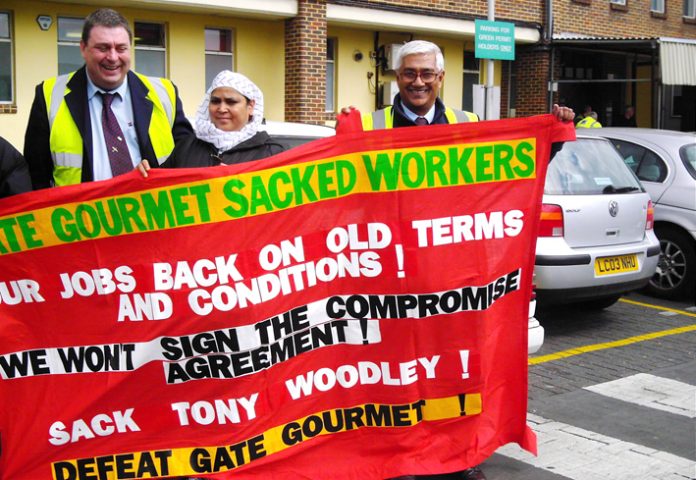
AFTER the disgraceful sell out of final salary pensions by union leaders of the NHS, civil service and local government trade unions, the basic anger of the working class, as seen by the reception given to Health Minister Hewitt at the UNISON Health and RCN conferences, is now making itself felt.
At the UNISON health conference, the union’s leader, Dave Prentis, was forced to pledge that the union would support any of its members who felt that they had to take strike action against NHS cuts.
At the RCN conference its leader warned Labour that it was skating on the thinnest of thin ice, as far as its treatment of the NHS was concerned.
RCN members then proved that point.
Now the BBC trade unions have rejected the disgraceful way out of the struggle over pensions that has been worked out by the major union leaders.
This was to seek to keep final salary pensions for the existing workforce, (while accepting an extra five years of work till 65) and that all new starters would be on a much worse average wage pension.
The NUJ said that ‘NUJ members will be balloted for strike action over plans by the BBC to undermine the pension rights of tens of thousands of staff if BBC managers reject a union call to begin meaningful negotiations over the scheme’s future in the next seven days.’
Union reps from three unions – NUJ, BECTU and AMICUS have demanded the BBC keeps open the final salary pension scheme for new members; cap contributions at 7.5 per cent, and abandon plans to force staff to work to 65.
Meanwhile, the threat of a nationwide rail strike has moved a step closer after unions set a deadline for Network Rail to agree to keep its final salary pension scheme open to all staff, and a cap on contributions.
The threat of the first industry-wide railway stoppage since the General Strike of 1926 comes from the Rail Maritime and Transport union (RMT), ASLEF, the Transport Salaried Staffs Association (TSSA), and engineering unions in the Confederation of Shipbuilding and Engineering Trade Unions (CSEU).
‘Our members have packed into meetings around the country to tell us that they are not prepared to allow their pension scheme to disintegrate before their eyes, or suffer the massive contribution hikes that will be triggered on 1 July if no agreement is reached,’ said TSSA general secretary Gerry Doherty.
‘Doing nothing. . . is simply not an option and if it means industrial action, then so be it.’
Meanwhile, the Pensions Regulator has reported that UK occupational pension schemes may have a collective deficit of between £300bn and £400bn.
The Regulator also warned that between 150 and 300 large occupational pension schemes are at risk and being actively investigated.
It is well known that the employers and the government are dedicated to smashing all final salary pension schemes as well as adding between five to 10 years to workers’ working lives, to ensure that many fewer live to collect even a pittance of a pension.
The only way forward is for the BBC and rail trade unions to name the date for united strike action to defend the retirement age of 60 and final salary pension schemes.
Local Government workers, NHS workers and civil servants who are angry at their leaders’ agreement to end final salary pensions must wage a battle to force their leaders to revise their position and to join any pensions action by the rail and BBC workers.
Such action by millions of workers will bring millions more workers, whose final salary pensions are under threat, into the battle.
In this struggle the trade unions must not flinch from bringing down the Blair government and bringing in a workers’ government that will carry out socialist policies – the only way that the pensions struggle will be won.
.
